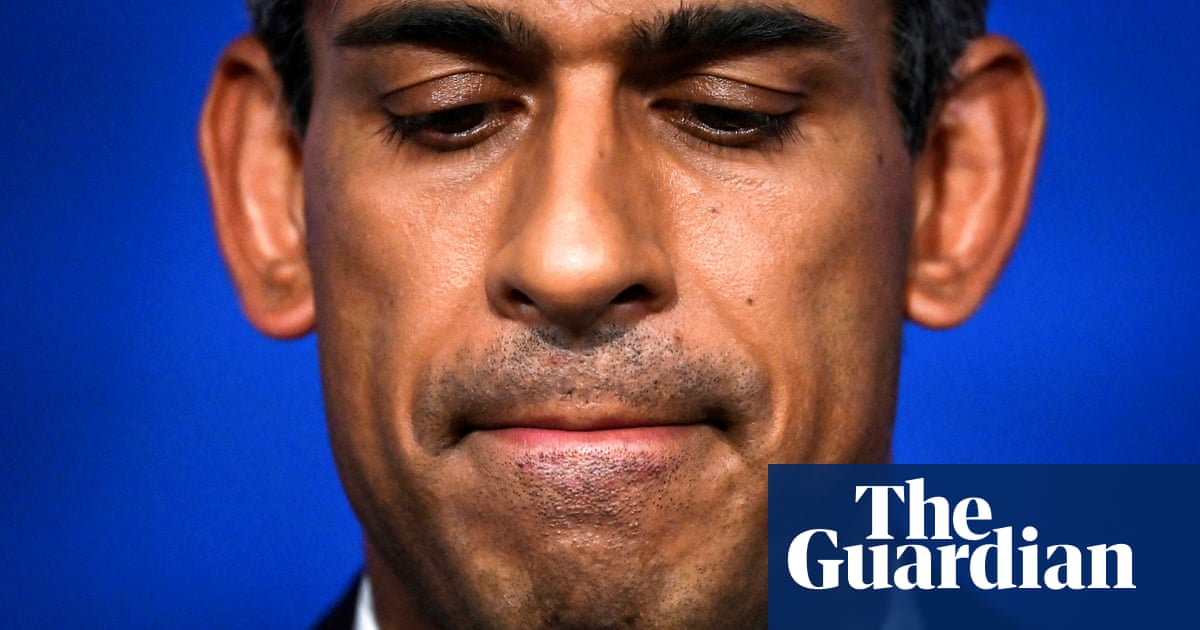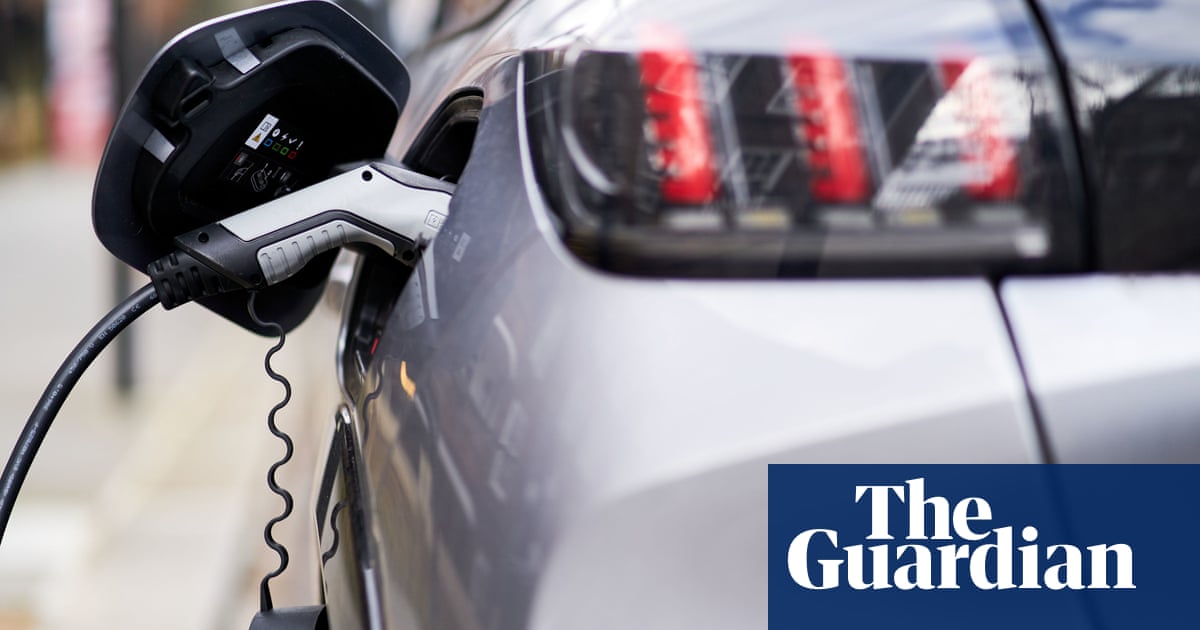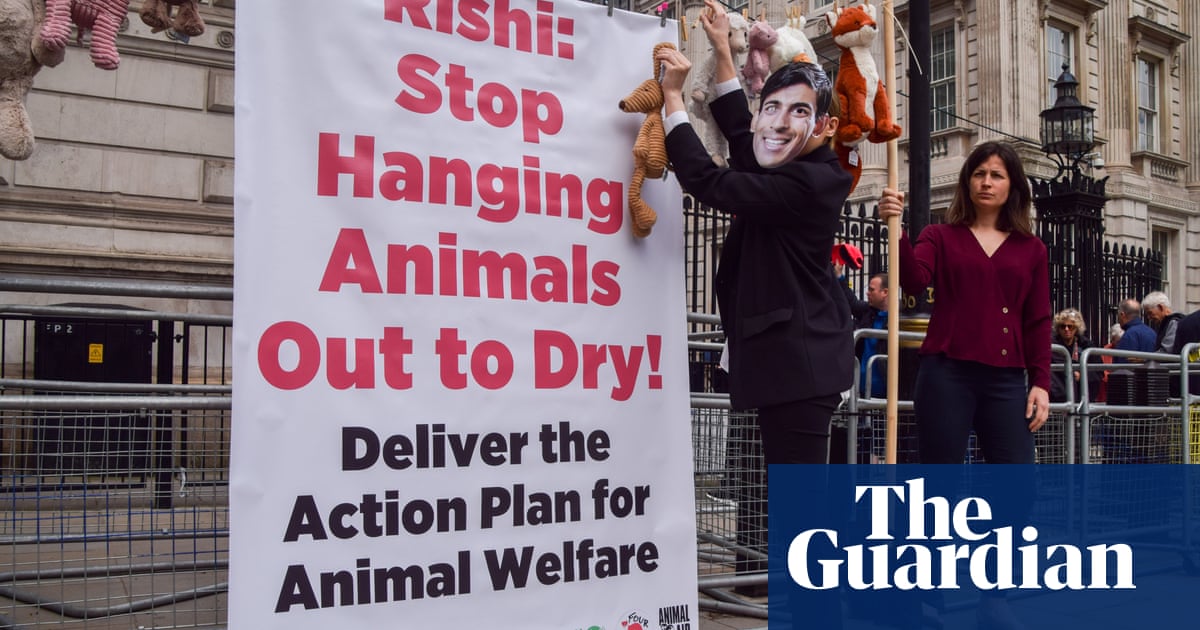
Boris Johnson’s plan to lift England’s remaining lockdown restrictions was overshadowed by a furious backlash against the prime minister and his chancellor on Sunday, triggering a hasty U-turn and prompting questions about a pilot scheme designed to let them avoid isolation.
Downing Street was accused of sowing confusion and a sense of “one rule for them” on the eve of so-called “freedom day” by saying Johnson and Rishi Sunak would continue with “essential government business” while having daily rapid tests.
They about-turned less than three hours later, with one Whitehall source suggesting the chancellor put pressure on No 10 to back down. “Sunak knew how this would go down with businesses, which are having to shut because their staff are being pinged,” the source said.
Johnson, Sunak and the health secretary, Sajid Javid, are in quarantine – along with more than 1 million people estimated to have been told to self-isolate – as England completes the final stage of reopening and UK new infection rates climb to among the highest in the world, behind Indonesia and Brazil.
On Sunday night, Downing Street emphasised that measures could return. “Data will be continually assessed and contingency measures retained if needed during higher risk periods, but restrictions will be avoided if possible,” it said.
The prime minister has been under growing pressure to either bring cases under control or change the rules for isolation, with up to 10 million people expected to be told to isolate by mid-August.
After Javid tested positive for the virus on Saturday, Downing Street said Johnson and Sunak would escape the need for 10 days’ isolation despite them being contacted by NHS test and trace after meeting face-to-face with Javid.
An incensed response from bereaved relatives and MPs, and promises from social media users to delete their Covid-19 apps in protest, prompted Downing Street to reverse, two hours and 37 minutes later.
Questions are growing over the workplace pilot scheme, which allows certain government departments and other public bodies to avoid isolating after exposure to Covid, after transport networks said they were not involved.
One minister lauded the participation of Transport for London in the scheme as evidence that “it’s not just available for politicians”. The communities secretary, Robert Jenrick, told Sky News: “The scheme is a well-known and longstanding one. It’s not just available for politicians if you like. It’s being used by 20 organisations in the public sector, including larges ones like TfL, that runs the transport network in London, and Border Force.”
But TfL said it was not yet taking part in the pilot. “The government has indicated that we could be part of a trial whereby daily tests would replace the need for self-isolation. We are still waiting for formal notification from them that we are part of this trial so that we can brief our trade unions and put this into effect,” a spokesperson said.
A health official said the ongoing pilot of daily contact testing in workplaces began in December but Downing Street joined in May. He claimed TfL has two sites registered as part of the workplace pilot scheme.
The RMT transport union warned against creating widespread confusion before reopening. The RMT general secretary, Mick Lynch, said: “We were consulted last year on a limited pilot at specific locations for critical signalling operations. This was never developed into a general agreement for Network Rail, TfL, the wider rail sector or for transport in general.
“For the government to claim there is an agreed scheme or system is totally untrue. The government has once again demonstrated its incompetence with the wholly bogus statements it has made today. The consequences of those actions will be serious.”
Border Force staff in Manchester and Dover have been offered the pilot testing scheme, a source told the Guardian, but it has been under review by health department officials as so few staff members volunteered. “The scheme proved very unpopular because staff who put their names forward had to go into work even on their days off to be tested. So we expected to see it closed down,” source said.
Little further detail on the scheme was available on Sunday, despite a series of questions put to Downing Street. It said a full list of organisations taking part would be published after the results were recorded. The scheme is separate from a randomised controlled trial to let 40,000 participants take daily rapid tests instead of isolating.
In May, the Cabinet Office minister, Michael Gove, benefited from the workplace pilot scheme after being “pinged” by the Covid-19 app after a trip to Portugal for the Champions League final. Sources said he had since left the trial.
From 16 August, fully vaccinated people will be allowed to avoid isolation if contacted by NHS test and trace but there have been warnings that, with cases soaring, up to 10 million people could be told to isolate before that date, hitting hospitals, businesses and council services.
Against the backdrop of people reporting they would delete the NHS Covid-19 app, which alerts them to potential exposure and tells them to isolate, Johnson said in a statement posted on Twitter: “We did look briefly into the idea of us taking part in the pilot scheme which allows people to test daily, but I think it’s far more important that everybody sticks to the same rules.
“I really do urge everybody to stick with the programme and take the appropriate course of action when you’re asked to do so by NHS test and trace.” He will isolate at Chequers, his countryside retreat, until 26 July.
Backbench Tory MPs and former ministers had been among those who had criticised what Labour said would be regarded by many people across the UK as a “special, exclusive rule” for Johnson and Sunak.












